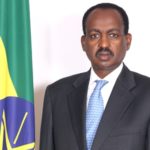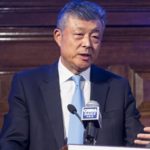The Chinese embassy in Australia on Wednesday clarified why it had revealed detailed content of a phone call between Chinese Ambassador to Australia Cheng Jingye and Australia’s Department of Foreign Affairs and Trade (DFAT) Secretary Frances Adamson, saying Australian officials had leaked the conversation intentionally and resulting in misleading information on Australian media.
An embassy spokesperson said on Wednesday that the embassy’s clarification statement was a legitimate response to the earlier breach of diplomatic protocol by the Australian side, noting the Australian media report was “inaccurate and misleading”.
As a result, the Chinese embassy had no choice but to set the record straight, the spokesperson said.
“The Chinese embassy does not play petty tricks. This is not our tradition. But if others do, we have to reciprocate,” the embassy spokesperson said.
Cheng on Monday spoke with Adamson, and on Tuesday clarified the call’s content on the embassy’s website after some Australian media had reported misleading information about the call.
“Secretary Adamson tried her best to defend Australia’s proposal about the independent (COVID-19) review, saying the proposal neither has political motive nor targets China. She also admitted it is now not the time to commence the review, and Australia has no details of the proposal,” the spokesperson said, according to a statement published on the embassy’s website.
Adamson further noted that Australia does not want the matter to have any impact on bilateral relations, according to the statement.
“No matter what excuses the Australian side has made, the fact cannot be buried that the proposal is a political maneuver. As a Western saying goes: Cry up wine and sell vinegar,” the embassy spokesperson said. Ambassador Cheng Jingye clearly elaborated China’s position on the issue with Adamson.
In addition, Cheng rejected concerns expressed from the Australian side over his remarks during a recent interview with the Australian Financial Review, and called on Australia to put aside ideological bias, cease playing political games and do more to promote bilateral relations.
Global Times



